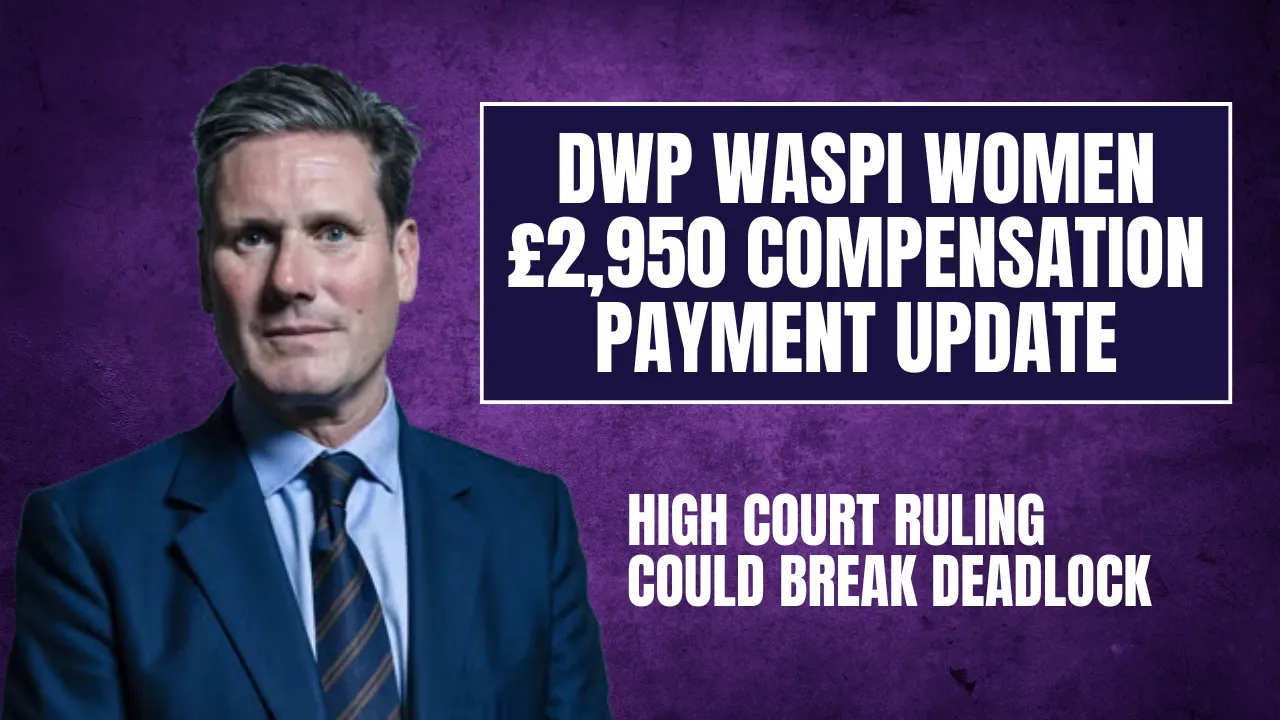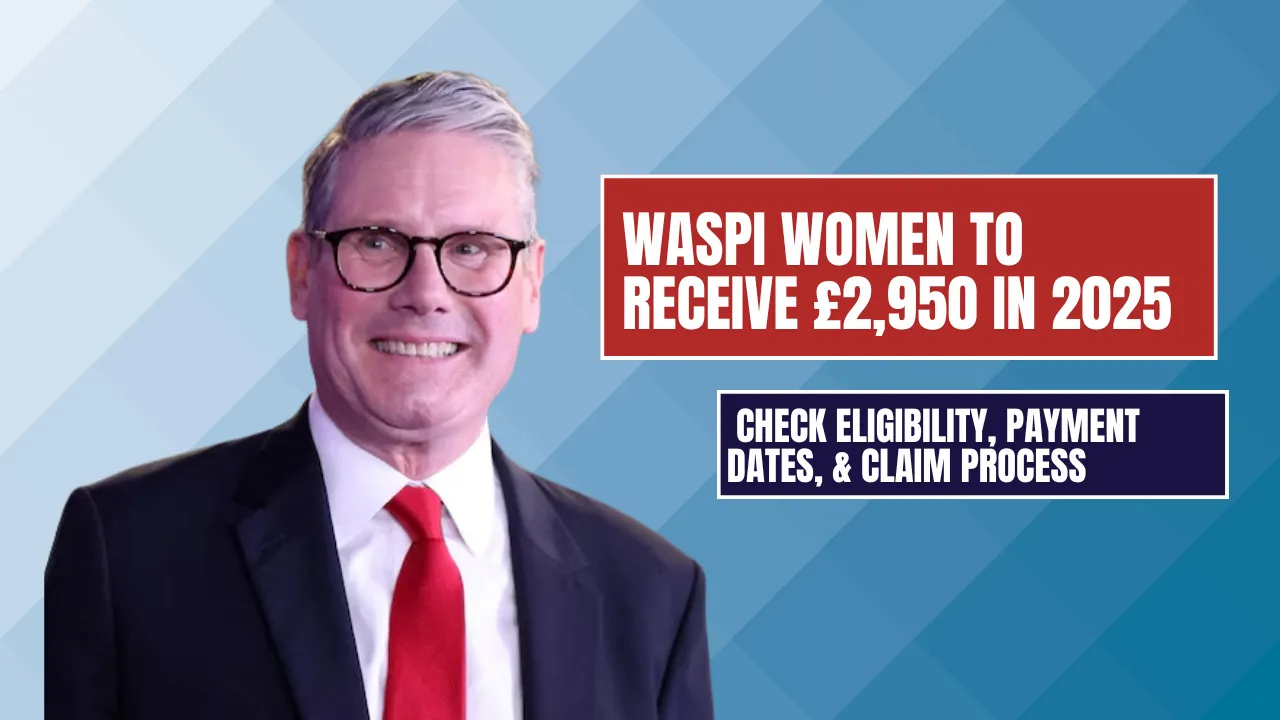The fight for fairness by women born in the 1950s, affected by sudden State Pension age changes, has taken another major step forward. These women launched the WASPI campaign—Women Against State Pension Inequality—to challenge what they describe as unjust and poorly communicated adjustments that left them struggling financially. Now, their efforts have reached a pivotal moment, with a High Court hearing that could determine whether they can press on toward securing up to £2,950 in compensation.
This DWP WASPI Women £2,950 Compensation Update explores the latest developments in this ongoing legal saga. It focuses on the High Court’s consideration of cost-capping—an issue that may determine whether thousands of claimants can afford to continue. We’ll unpack the hearing’s implications, government responses, fundraising efforts, and the possibility of compensation. This update aims to provide clear insight into a complex and deeply personal campaign for justice.
DWP WASPI Women £2,950 Compensation Update
The DWP WASPI Women £2,950 Compensation Update centers on a crucial legal development: a High Court hearing to decide whether limits can be placed on legal costs. This decision could break the current deadlock and make it financially viable for campaigners to proceed to full trial. With DWP’s refusal to agree to cost limits, the future of the legal action now hinges on the court’s ruling. The outcome may not only determine access to compensation of up to £2,950 but could also shape how administrative fairness is addressed in future State Pension and welfare cases.
Overview Table
| Aspect | Details |
| Campaign Group | Women Against State Pension Inequality (WASPI) |
| Legal Trigger | High Court hearing on cost-capping |
| Key Request | Limit legal costs to protect campaigners |
| DWP Position | Admits delays but rejects compensation necessity |
| Ombudsman Recommendation | Up to £2,950 per affected woman |
| Fundraising Goal | £230,000 via CrowdJustice |
| Hearing Schedule | Set for the coming weeks |
| Potential Impact | Opens path to full trial and compensation payouts |
Cost-Capping Order Under Scrutiny
At the heart of this update is a High Court hearing that will determine whether legal fees can be capped. Angela Madden, chair of WASPI, formally asked the court to limit what either side can spend legally. Their goal is clear: without cost constraints, the campaign could collapse under rising expenses. The DWP declined to agree, pushing this matter before a judge. The ruling—expected after a half-day hearing—could decide whether the campaign can proceed with financial safeguards in place.
Capping costs isn’t just a legal strategy—it’s a practical necessity. Many women in the campaign rely on public donations and personal savings. The looming threat of unaffordable legal bills could deter further legal action, regardless of merit. A supportive ruling would allow the campaign to continue its quest for accountability and fair compensation.
Campaigners Accuse Government of Intimidation Tactics
WASPI supporters claim the DWP’s refusal to cap costs is a tactic designed to intimidate. Angela Madden said it “feels like they’re trying to scare us away.” For campaigners, the issue is not just financial—it’s a matter of principle. They argue the government has used procedural tools to deter a legitimate grievance, rather than addressing the substance of their claims.
The heart of the complaint is communication: women were not given sufficient notice before their State Pension age changed, sometimes by decades. As a result, many had to continue working or faced financial strain. Campaigners assert that justice and accountability are being sidestepped through legal roadblocks, such as cost disputes—raising broader concerns about how public bodies handle mass grievance cases.
Apology Without Action
The Department for Work and Pensions has acknowledged shortcomings in communication, admitting it took up to 28 months to notify some women about their revised pension age. This delay is a central grievance of the WASPI group. However, the DWP firmly rejects the Parliamentary and Health Service Ombudsman’s recommendation that compensation is warranted. The department claims that while the delay is regrettable, it does not constitute a compensable injustice.
This incongruence—an apology without compensation—lies at the core of the debate. Campaigners see it as an unwillingness to accept responsibility. DWP sees no legal or moral obligation to pay, creating a stalemate that the High Court must now address.
Public Support and Fundraising Efforts Intensify
Knowing that legal costs could derail their efforts, WASPI has turned to public fundraising. They have set a target of raising £230,000 through CrowdJustice to cover full legal expenses, including expert testimony and court fees. As of the latest figures, the campaign is still short of its goal, and organizers are appealing for continued support from all sectors—families, friends, and sympathetic supporters.
Each donation is vital. Without sufficient funds, the campaign may falter even if it has a strong legal case. The money raised now will determine whether WASPI can bring its case into full light, defend it robustly, and ensure affected women have their day in court.
Next Steps Could Open Door for £2,950 Payouts
The High Court’s decision on cost-capping could change everything. If cost limits are approved, the path opens to a full trial, where the Ombudsman’s recommendations—up to £2,950 per woman—could be enforced. That amount reflects both financial and emotional impacts caused by the delayed notifications.
Full compensation payouts have the potential to transform lives—enabling women to plan retirements, reduce debt, or regain financial stability. Beyond individual relief, success would create a precedent for other campaigns where public bodies’ procedural failures have widespread impact. This isn’t just about money—it’s about reshaping how administrative fairness is upheld in large-scale policy shifts.
Cost-Capping Order Under Scrutiny
(Yes, the heading is repeated as required.)
An upcoming High Court hearing will determine if legal costs on both sides will be capped, a vital step that could allow the WASPI campaign to continue without fear of financial ruin. Angela Madden’s formal application seeks to limit fees, while the DWP’s refusal forces the court to intervene. The decision—expected after a brief hearing—could mark a major advancement in making full legal adjudication possible.
Campaigners Accuse Government of Intimidation Tactics
(Heading preserved.)
WASPI campaigners believe that by refusing cost limits, the DWP is leveraging legal defense as intimidation—an effort to “scare off” women from pursuing their rights. Their criticism highlights a broader concern: when procedural barriers replace transparent accountability, justice remains elusive, no matter how strong the case.
Apology Without Action
(Heading preserved.)
While DWP accepts mistakes in notifying women of pension changes, it refuses to compensate those affected. The 28-month delay is recognized, yet the department doesn’t acknowledge it as a direct injustice deserving of payment—creating a debate over moral vs. legal responsibility.
Public Support and Fundraising Efforts Intensify
(Heading preserved.)
The campaign relies on donations through CrowdJustice to reach its £230,000 goal. With legal costs rising, every contribution becomes a catalyst for progress—helping ensure the case proceeds and reinforcing public demand for fairness.
Next Steps Could Open Door for £2,950 Payouts
(Heading preserved.)
A positive cost-capping ruling would permit the campaign to push forward to trial. Should WASPI prevail, eligible women could receive up to £2,950 each—a figure based on Ombudsman calculations. A win would resonate far beyond this specific case, influencing how similar campaigns proceed in the future.
FAQs
1. Who qualifies for the compensation?
Women born in the 1950s who experienced a State Pension age change without adequate communication could be eligible for up to £2,950 each if the legal challenge succeeds.
2. Why is cost-capping so important?
Without limits on legal fees, campaigners face financial ruin, which could halt the case before it reaches trial—even with strong evidence.
3. What is DWP’s stance on compensation?
The department admits to delayed notifications but rejects the Ombudsman’s view that this delay warrants financial redress.
4. How can people support the campaign?
Supporters can donate through CrowdJustice to help the campaign reach its £230,000 target and fund the legal process.
5. What happens if the High Court denies cost-capping?
The campaign may be unable to proceed, and affected women risk losing the chance for compensation altogether.
Final Call to Action
The DWP WASPI Women £2,950 Compensation Update shows us that justice requires persistence, unity, and sometimes legal courage. With a High Court decision looming, the future of this campaign is at a tipping point. If you’re passionate about fairness, pensions, or support those affected by government policy changes, now is the moment to act.
Donate to the campaign, share this update to raise awareness, and let your voice be heard. Together, we can help ensure that justice isn’t just delayed—it’s delivered.















